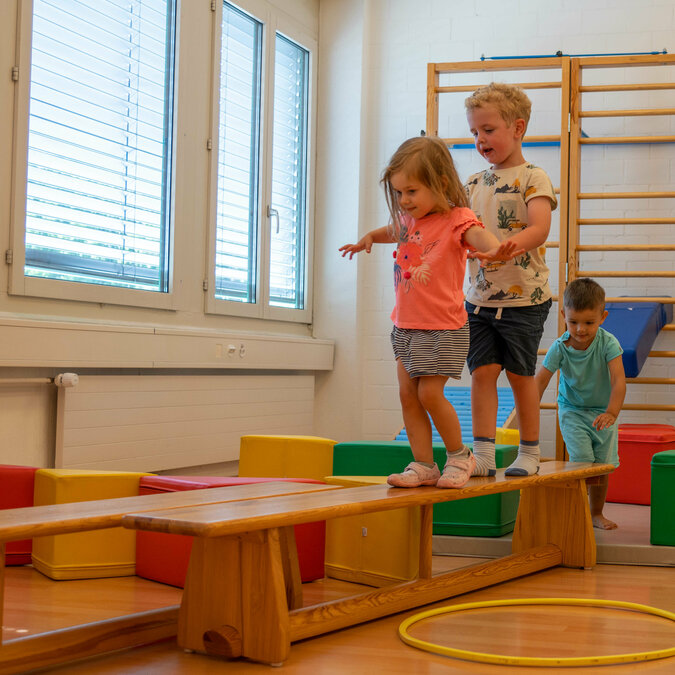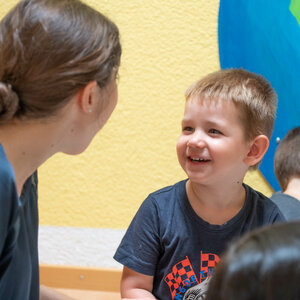The children are allowed, enabled and encouraged to live out and express their own individual personali-ties. The resulting new and diverse experiences with themselves, their environment and with other children and adults strengthen their own self-confidence and build the foundation for their healthy development.
A well-prepared and individually-tailored adjustment time is the basis for a trust-based, productive relationship between the child, the parents and the childcare provider. It is important that the child has a smooth and friendly transition into the new phase of its life that childcare represents. The childcare centre makes many new and exciting impressions upon the child, such as the rooms, the many different staff members and all the new playmates. During this phase it is important to respond to the needs of the child and to establish a repoire with it.



